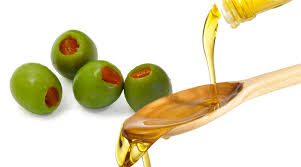Study Shows Olive Oil Oleocanthal Compound Kills Cancer Cells In Thirty Minutes

Olives contain the phytonutrient “oleocanthal” compound that the study[1] by Paul Breslin, professor of nutritional sciences in the School of Environmental and Biological Sciences at Rutgers, and David Foster and Onica LeGendre of Hunter College in the journal Molecular and Cellular Oncology shows kills cancer cells in thirty minutes. Phytonutrients are chemicals that protect plants from germs, fungi, bugs, and other threats, and in turn protect you from these threats when you consume them.
The study was done in vitro (performed in a test tube, culture dish) but showed what was likely to happen inside human subjects. Scientists were aware that olive’s oleocanthal compound killed cancer cells but there weren’t aware of the precise manner is which it was done.
Breslin believed that oleocanthal might be targeting a key protein in cancer cells that triggers a programmed cell death, known as apoptosis, and worked with Foster and Legendre to test his hypothesis after meeting David Foster at a seminar he gave at Rutgers…After applying oleocanthal to the cancer cells, Foster and LeGendre discovered that the cancer cells were dying very quickly – within 30 minutes to an hour. Since programmed cell death takes between 16 and 24 hours, the scientists realized that something else had to be causing the cancer cells to break down and die.[2]
The researchers uncovered oleocanthal compound in olives caused cancer cells to die by their own enzymes, but oleocanthal did not cause the death of healthy cells. Oleocanthal punctures the weakened membranes of lysosomes, which are sacs that contain the cell’s waste. Oleocanthal was not able to puncture the lysosomal membrane of healthy cells.
“Once you open one of those things, all hell breaks loose,” Breslin said. The release of the waste leads to the cells death.
Though olive oil was used in the study and not whole olives, it is better to add whole olives to the diet rather than adding a lot of oil olive to the diet. Though olive oil has its benefits, it is not a whole because only the olive oil is used and the rest of the olive is discarded.
Consumption of a lot of oil/fat helps to promote obesity. With the rise in obesity and related heart disease, we need to be careful with the amount of fat we add to our diets. All of the nutrients in whole olives work best together and help to regulate the digestion of fat, and this helps to achieve and maintain homeostasis in the body.
[1] Oleocanthal rapidly and selectively induces cancer cell death via lysosomal membrane permeabilization
[2] http://news.rutgers.edu/research-news/ingredient-olive-oil-looks-promising-fight-against-cancer/20150211#.VOf8B7DF-m0






